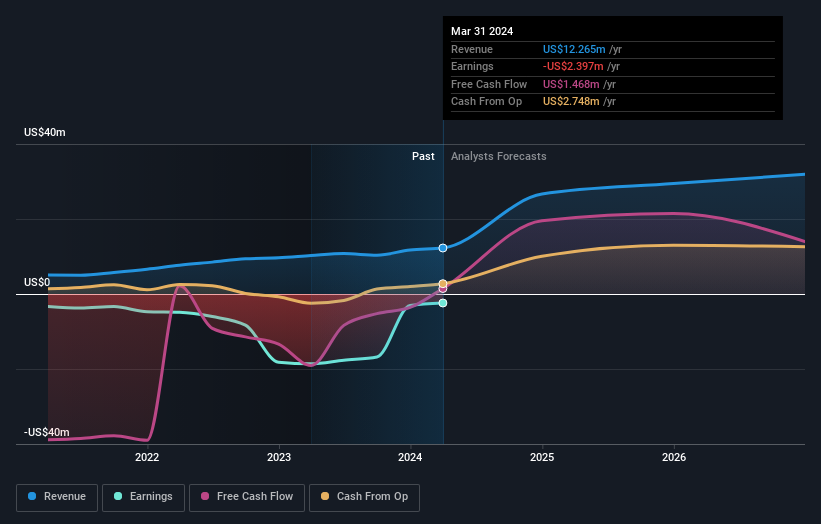Elemental Altus Royalties Corp.'s (CVE:ELE) top owners are retail investors with 56% stake, while 32% is held by private equity firms
Key Insights
Significant control over Elemental Altus Royalties by retail investors implies that the general public has more power to influence management and governance-related decisions
44% of the business is held by the top 12 shareholders
Ownership research, combined with past performance data can help provide a good understanding of opportunities in a stock
A look at the shareholders of Elemental Altus Royalties Corp. (CVE:ELE) can tell us which group is most powerful. With 56% stake, retail investors possess the maximum shares in the company. Put another way, the group faces the maximum upside potential (or downside risk).
Private equity firms, on the other hand, account for 32% of the company's stockholders.
In the chart below, we zoom in on the different ownership groups of Elemental Altus Royalties.
See our latest analysis for Elemental Altus Royalties
What Does The Institutional Ownership Tell Us About Elemental Altus Royalties?
Institutional investors commonly compare their own returns to the returns of a commonly followed index. So they generally do consider buying larger companies that are included in the relevant benchmark index.
As you can see, institutional investors have a fair amount of stake in Elemental Altus Royalties. This implies the analysts working for those institutions have looked at the stock and they like it. But just like anyone else, they could be wrong. It is not uncommon to see a big share price drop if two large institutional investors try to sell out of a stock at the same time. So it is worth checking the past earnings trajectory of Elemental Altus Royalties, (below). Of course, keep in mind that there are other factors to consider, too.
Elemental Altus Royalties is not owned by hedge funds. The company's largest shareholder is La Mancha Holding S.à R.L., with ownership of 32%. In comparison, the second and third largest shareholders hold about 3.9% and 2.0% of the stock. Frederick Augustus Ronald Peter Bell, who is the third-largest shareholder, also happens to hold the title of Member of the Board of Directors.
A deeper look at our ownership data shows that the top 12 shareholders collectively hold less than half of the register, suggesting a large group of small holders where no single shareholder has a majority.
While studying institutional ownership for a company can add value to your research, it is also a good practice to research analyst recommendations to get a deeper understand of a stock's expected performance. While there is some analyst coverage, the company is probably not widely covered. So it could gain more attention, down the track.
Insider Ownership Of Elemental Altus Royalties
The definition of company insiders can be subjective and does vary between jurisdictions. Our data reflects individual insiders, capturing board members at the very least. Management ultimately answers to the board. However, it is not uncommon for managers to be executive board members, especially if they are a founder or the CEO.
Insider ownership is positive when it signals leadership are thinking like the true owners of the company. However, high insider ownership can also give immense power to a small group within the company. This can be negative in some circumstances.
We can report that insiders do own shares in Elemental Altus Royalties Corp.. In their own names, insiders own CA$14m worth of stock in the CA$229m company. Some would say this shows alignment of interests between shareholders and the board, though we generally prefer to see bigger insider holdings. But it might be worth checking if those insiders have been selling.
General Public Ownership
The general public, mostly comprising of individual investors, collectively holds 56% of Elemental Altus Royalties shares. This level of ownership gives investors from the wider public some power to sway key policy decisions such as board composition, executive compensation, and the dividend payout ratio.
Private Equity Ownership
Private equity firms hold a 32% stake in Elemental Altus Royalties. This suggests they can be influential in key policy decisions. Sometimes we see private equity stick around for the long term, but generally speaking they have a shorter investment horizon and -- as the name suggests -- don't invest in public companies much. After some time they may look to sell and redeploy capital elsewhere.
Next Steps:
While it is well worth considering the different groups that own a company, there are other factors that are even more important. For example, we've discovered 2 warning signs for Elemental Altus Royalties (1 makes us a bit uncomfortable!) that you should be aware of before investing here.
If you would prefer discover what analysts are predicting in terms of future growth, do not miss this free report on analyst forecasts.
NB: Figures in this article are calculated using data from the last twelve months, which refer to the 12-month period ending on the last date of the month the financial statement is dated. This may not be consistent with full year annual report figures.
Have feedback on this article? Concerned about the content? Get in touch with us directly. Alternatively, email editorial-team (at) simplywallst.com.
This article by Simply Wall St is general in nature. We provide commentary based on historical data and analyst forecasts only using an unbiased methodology and our articles are not intended to be financial advice. It does not constitute a recommendation to buy or sell any stock, and does not take account of your objectives, or your financial situation. We aim to bring you long-term focused analysis driven by fundamental data. Note that our analysis may not factor in the latest price-sensitive company announcements or qualitative material. Simply Wall St has no position in any stocks mentioned.

 Yahoo Finance
Yahoo Finance 

